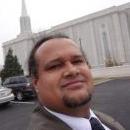-
Posts
6428 -
Joined
-
Last visited
-
Days Won
28
Reputation Activity
-
 mordorbund reacted to NeedleinA in Emergency Help...w/ your avatar image
mordorbund reacted to NeedleinA in Emergency Help...w/ your avatar image
For those of you that still sport the standard ambiguous "short haired white woman/man ghost on dark grey circle image"... there is HOPE!!
Don't give up! You too can add an avatar image to your profile! Join the club!
Still like the white hermaphrodite look? Don't worry we got you covered! Available for a limited time, buy now!!!!
Donkeys? Yep, we got'm
But what about dragons you say?? Of course, those too!
Getting baptized soon? A.I. special, half off!
Don't wait, download now
-
 mordorbund got a reaction from The Folk Prophet in Adam & Eve idea, outside of the box?
mordorbund got a reaction from The Folk Prophet in Adam & Eve idea, outside of the box?
Except they were immortal. The consequence of eating the forbidden fruit is that they would die (Gen. 2:17). That means they were, indeed immortal. Imagine if the consequence was something like "in the day you eat you will surely let the air flow through your lungs". The natural conclusion would be that they didn't breathe with their lungs before that.
Whether that's inherent, I'm not sure what's meant here. Was there a period of time when they weren't immortal? Perhaps, but we seem to be limiting the scope to the Garden eastward in Eden, so any speculation on their state beforehand doesn't seem to have a lot of bearing to the topic at hand.
This seems to be more of a question of what it means to be immortal. Does the resurrected Jesus have hair, nails, and human skin? If so, they are the result of dead cells. Perhaps He is not so immortal after all? Or immortality might refer to the system rather than the parts. Or not, maybe immortal hair really is living. Regardless, I don't see this as destroying the stable state that existed in the Garden before the Fall, unless we allow for it to destroy the stable state that the faithful are promised hereafter.
Regarding the discarded fruit hypothetical - it would have turned into a female tree, as the Lord discovered when He tried to discard Adam's rib.
"All things which were created" does not refer to Adam and Eve (from my reading). If so, that's a really awkward construct. I agree that the traditional reading interprets "all things which were created" to mean "all animals and plants" and sometimes "all rivers, oceans, and landmasses". And I'll even agree that there can be an alternate reading if we turn all the "they"s into references to Adam and Eve (which I agree 23 does).
I think the variant reading that could be supported is that "all things which were created" is the state of creation, that is, "all things which were created" is the immortal, sterile, innocent, joyless, miseryless, goodless, sinless state. Making this interpretation seems to move forward with what he's proposing. I'm not fully convinced, but I'll humor that and move on.
Wait, if they were immortal, then what about the dead skin, hair, and fingernails? I feel like we've created a problem but we still haven't really solved it. Unless the solution here is to say - see there is death all over the Garden (trees, grass, fruit, etc) it's just the whole entity of Adam and of Eve that are deathless - in which case, why not just go with the immortal/stable system I mentioned above. Then you can have rotting fruit and branches so long as trees don't die.
Are they only immortal so long as they eat the fruit once a day (since we're saying it's not 'inherent')? Or once a week? Is that the gist?
Does the fruit also make them sterile (Tree of Life indeed!)? joyless? innocent? or are some of these carried over from pre-Edenic life? If that's the case, why not have an immortal Adam and Eve placed in the Garden?
And if there's a population on Earth, why aren't they going into the Garden when there's an immortality tree? Are there cherubim surrounding the Garden?
I feel like this solution creates more problems than it solves (and I don't think it satisfactorily solves the one it was aiming for).
-
 mordorbund got a reaction from Edspringer in Adam & Eve idea, outside of the box?
mordorbund got a reaction from Edspringer in Adam & Eve idea, outside of the box?
Except they were immortal. The consequence of eating the forbidden fruit is that they would die (Gen. 2:17). That means they were, indeed immortal. Imagine if the consequence was something like "in the day you eat you will surely let the air flow through your lungs". The natural conclusion would be that they didn't breathe with their lungs before that.
Whether that's inherent, I'm not sure what's meant here. Was there a period of time when they weren't immortal? Perhaps, but we seem to be limiting the scope to the Garden eastward in Eden, so any speculation on their state beforehand doesn't seem to have a lot of bearing to the topic at hand.
This seems to be more of a question of what it means to be immortal. Does the resurrected Jesus have hair, nails, and human skin? If so, they are the result of dead cells. Perhaps He is not so immortal after all? Or immortality might refer to the system rather than the parts. Or not, maybe immortal hair really is living. Regardless, I don't see this as destroying the stable state that existed in the Garden before the Fall, unless we allow for it to destroy the stable state that the faithful are promised hereafter.
Regarding the discarded fruit hypothetical - it would have turned into a female tree, as the Lord discovered when He tried to discard Adam's rib.
"All things which were created" does not refer to Adam and Eve (from my reading). If so, that's a really awkward construct. I agree that the traditional reading interprets "all things which were created" to mean "all animals and plants" and sometimes "all rivers, oceans, and landmasses". And I'll even agree that there can be an alternate reading if we turn all the "they"s into references to Adam and Eve (which I agree 23 does).
I think the variant reading that could be supported is that "all things which were created" is the state of creation, that is, "all things which were created" is the immortal, sterile, innocent, joyless, miseryless, goodless, sinless state. Making this interpretation seems to move forward with what he's proposing. I'm not fully convinced, but I'll humor that and move on.
Wait, if they were immortal, then what about the dead skin, hair, and fingernails? I feel like we've created a problem but we still haven't really solved it. Unless the solution here is to say - see there is death all over the Garden (trees, grass, fruit, etc) it's just the whole entity of Adam and of Eve that are deathless - in which case, why not just go with the immortal/stable system I mentioned above. Then you can have rotting fruit and branches so long as trees don't die.
Are they only immortal so long as they eat the fruit once a day (since we're saying it's not 'inherent')? Or once a week? Is that the gist?
Does the fruit also make them sterile (Tree of Life indeed!)? joyless? innocent? or are some of these carried over from pre-Edenic life? If that's the case, why not have an immortal Adam and Eve placed in the Garden?
And if there's a population on Earth, why aren't they going into the Garden when there's an immortality tree? Are there cherubim surrounding the Garden?
I feel like this solution creates more problems than it solves (and I don't think it satisfactorily solves the one it was aiming for).
-

-
 mordorbund got a reaction from zil in Adam & Eve idea, outside of the box?
mordorbund got a reaction from zil in Adam & Eve idea, outside of the box?
Except they were immortal. The consequence of eating the forbidden fruit is that they would die (Gen. 2:17). That means they were, indeed immortal. Imagine if the consequence was something like "in the day you eat you will surely let the air flow through your lungs". The natural conclusion would be that they didn't breathe with their lungs before that.
Whether that's inherent, I'm not sure what's meant here. Was there a period of time when they weren't immortal? Perhaps, but we seem to be limiting the scope to the Garden eastward in Eden, so any speculation on their state beforehand doesn't seem to have a lot of bearing to the topic at hand.
This seems to be more of a question of what it means to be immortal. Does the resurrected Jesus have hair, nails, and human skin? If so, they are the result of dead cells. Perhaps He is not so immortal after all? Or immortality might refer to the system rather than the parts. Or not, maybe immortal hair really is living. Regardless, I don't see this as destroying the stable state that existed in the Garden before the Fall, unless we allow for it to destroy the stable state that the faithful are promised hereafter.
Regarding the discarded fruit hypothetical - it would have turned into a female tree, as the Lord discovered when He tried to discard Adam's rib.
"All things which were created" does not refer to Adam and Eve (from my reading). If so, that's a really awkward construct. I agree that the traditional reading interprets "all things which were created" to mean "all animals and plants" and sometimes "all rivers, oceans, and landmasses". And I'll even agree that there can be an alternate reading if we turn all the "they"s into references to Adam and Eve (which I agree 23 does).
I think the variant reading that could be supported is that "all things which were created" is the state of creation, that is, "all things which were created" is the immortal, sterile, innocent, joyless, miseryless, goodless, sinless state. Making this interpretation seems to move forward with what he's proposing. I'm not fully convinced, but I'll humor that and move on.
Wait, if they were immortal, then what about the dead skin, hair, and fingernails? I feel like we've created a problem but we still haven't really solved it. Unless the solution here is to say - see there is death all over the Garden (trees, grass, fruit, etc) it's just the whole entity of Adam and of Eve that are deathless - in which case, why not just go with the immortal/stable system I mentioned above. Then you can have rotting fruit and branches so long as trees don't die.
Are they only immortal so long as they eat the fruit once a day (since we're saying it's not 'inherent')? Or once a week? Is that the gist?
Does the fruit also make them sterile (Tree of Life indeed!)? joyless? innocent? or are some of these carried over from pre-Edenic life? If that's the case, why not have an immortal Adam and Eve placed in the Garden?
And if there's a population on Earth, why aren't they going into the Garden when there's an immortality tree? Are there cherubim surrounding the Garden?
I feel like this solution creates more problems than it solves (and I don't think it satisfactorily solves the one it was aiming for).
-
 mordorbund got a reaction from NeedleinA in Adam & Eve idea, outside of the box?
mordorbund got a reaction from NeedleinA in Adam & Eve idea, outside of the box?
Except they were immortal. The consequence of eating the forbidden fruit is that they would die (Gen. 2:17). That means they were, indeed immortal. Imagine if the consequence was something like "in the day you eat you will surely let the air flow through your lungs". The natural conclusion would be that they didn't breathe with their lungs before that.
Whether that's inherent, I'm not sure what's meant here. Was there a period of time when they weren't immortal? Perhaps, but we seem to be limiting the scope to the Garden eastward in Eden, so any speculation on their state beforehand doesn't seem to have a lot of bearing to the topic at hand.
This seems to be more of a question of what it means to be immortal. Does the resurrected Jesus have hair, nails, and human skin? If so, they are the result of dead cells. Perhaps He is not so immortal after all? Or immortality might refer to the system rather than the parts. Or not, maybe immortal hair really is living. Regardless, I don't see this as destroying the stable state that existed in the Garden before the Fall, unless we allow for it to destroy the stable state that the faithful are promised hereafter.
Regarding the discarded fruit hypothetical - it would have turned into a female tree, as the Lord discovered when He tried to discard Adam's rib.
"All things which were created" does not refer to Adam and Eve (from my reading). If so, that's a really awkward construct. I agree that the traditional reading interprets "all things which were created" to mean "all animals and plants" and sometimes "all rivers, oceans, and landmasses". And I'll even agree that there can be an alternate reading if we turn all the "they"s into references to Adam and Eve (which I agree 23 does).
I think the variant reading that could be supported is that "all things which were created" is the state of creation, that is, "all things which were created" is the immortal, sterile, innocent, joyless, miseryless, goodless, sinless state. Making this interpretation seems to move forward with what he's proposing. I'm not fully convinced, but I'll humor that and move on.
Wait, if they were immortal, then what about the dead skin, hair, and fingernails? I feel like we've created a problem but we still haven't really solved it. Unless the solution here is to say - see there is death all over the Garden (trees, grass, fruit, etc) it's just the whole entity of Adam and of Eve that are deathless - in which case, why not just go with the immortal/stable system I mentioned above. Then you can have rotting fruit and branches so long as trees don't die.
Are they only immortal so long as they eat the fruit once a day (since we're saying it's not 'inherent')? Or once a week? Is that the gist?
Does the fruit also make them sterile (Tree of Life indeed!)? joyless? innocent? or are some of these carried over from pre-Edenic life? If that's the case, why not have an immortal Adam and Eve placed in the Garden?
And if there's a population on Earth, why aren't they going into the Garden when there's an immortality tree? Are there cherubim surrounding the Garden?
I feel like this solution creates more problems than it solves (and I don't think it satisfactorily solves the one it was aiming for).
-
 mordorbund got a reaction from beefche in "For the Strength of Youth" - commandment or guideline?
mordorbund got a reaction from beefche in "For the Strength of Youth" - commandment or guideline?
You can use it for cooking. All the caffeine cooks out of it.
-
 mordorbund got a reaction from zil in "For the Strength of Youth" - commandment or guideline?
mordorbund got a reaction from zil in "For the Strength of Youth" - commandment or guideline?
You can use it for cooking. All the caffeine cooks out of it.
-

-
 mordorbund reacted to prisonchaplain in Why do the LDS use the KJV?
mordorbund reacted to prisonchaplain in Why do the LDS use the KJV?
Well...I was in Seattle...even the Jehovah's Witnesses are relatively liberal in my neck of the woods. :-)
-
 mordorbund reacted to beefche in General Conference
mordorbund reacted to beefche in General Conference
I actually appreciated Pres Monson's correcting Pres Uchtdorf to acknowledge the negative votes. I think it shows that they do take the votes seriously and pointed out the correct process in dealing with them. I'm sure Church critics think of that in other terms, but that's how I view it.
-
 mordorbund got a reaction from Steve Noel in A Different God?
mordorbund got a reaction from Steve Noel in A Different God?
Steve I think you're to be commended. Typically when a Catholic or Protestant Christian comes to these forums to discuss the differences in our beliefs in God they open with the Trinity. Then we go back and forth for 14 pages posting past each other, with both sides making statements that sound essentially the same while the original poster insists "but this is totally different than what you believe." Finally on the 15th page we get to the nature of God (is He really our Father or isn't He) and the nature of man (did we exist before birth or didn't we).
You've hit on it in the first page. So, congratulations!
-
 mordorbund got a reaction from Jane_Doe in A Different God?
mordorbund got a reaction from Jane_Doe in A Different God?
Steve I think you're to be commended. Typically when a Catholic or Protestant Christian comes to these forums to discuss the differences in our beliefs in God they open with the Trinity. Then we go back and forth for 14 pages posting past each other, with both sides making statements that sound essentially the same while the original poster insists "but this is totally different than what you believe." Finally on the 15th page we get to the nature of God (is He really our Father or isn't He) and the nature of man (did we exist before birth or didn't we).
You've hit on it in the first page. So, congratulations!
-
 mordorbund reacted to Steve Noel in A Different God?
mordorbund reacted to Steve Noel in A Different God?
I have seen several responses like this in another LDS forum where I asked this question. The reasoning seems to be that since there is only one God, whatever someone calls God must be that same God. In the other forum someone stated that if a person worships a cow or a stick and calls that God, then it is the same God, because there is only one God. What I think is being missed is the reality that there are "so-called gods" (1 Cor. 8:5). That is, some worship, pray to, and believe in gods that do not exist in reality. These gods are not the true God but are false gods. The Ephesians worshiped many different gods in the 1st century. Yet when Paul came to Ephesus he proclaimed that "gods made with hands are no gods at all" (Acts 19:26). So, for the apostle Paul, every being that was called God was not God.
Let me illustrate: If you say that the President of the United States is a 6'1'' married African-American man with graying hair, and I say that he is a 5'4'' single Caucasian man with blonde hair, are we describing the same man? There is only one man who is the President of the United States. In this illustration, my description of the President does not correspond to reality, therefore, my "President" does not exist. A President exists, but the person I described was not him.
That is similar to how I see this question about God.
-
 mordorbund reacted to Just_A_Guy in Why do the LDS use the KJV?
mordorbund reacted to Just_A_Guy in Why do the LDS use the KJV?
It's worth noting that LDS-church-owned Brigham Young University is currently working on a multi-volume New Testament commentary. Their project page carefully avoids using the word "translation", but it nonetheless promises a "new rendition of the Greek texts of the New Testament books."
In addition to the other issues with departing from the KJV that have been noted - a lot of LDS concepts/teachings are referred to by phrases that are peculiar to the King James Bible. "More sure word of prophecy" and "calling and election made sure" are two that come readily to mind. Moreover, the Book of Mormon's English text (I believe) draws heavily on the KJV. Several parts of it directly quote (with some differences, but an enormous amount of similarity) from KJV renderings of Isaiah, Malachi, or other Old Testament prophets; and other parts aren't direct quotations but are clearly translated in such a way as to evoke other Biblical passages (compare, for example, Moroni 7 with 1 Corinthians 13).
To follow up on Vort's statement--I don't view all Bible translations with suspicion; but I've heard some pretty troubling things about--for example--the NIV. And I'm not generally a fan of the sort of "higher criticism" that assumes--for example--that Isaiah couldn't possibly have foreseen the Babylonian captivity, so any segments of the book of Isaiah that seem to mention it must be post-exilic additions
-
 mordorbund reacted to LeSellers in Do we all hear/feel the Spirit the same?
mordorbund reacted to LeSellers in Do we all hear/feel the Spirit the same?
Since prophets feel the Spirit in different ways, even the same prophet on the same subject, it would be odd if we all had a single experience with Him.
Lehi
-
 mordorbund reacted to beefche in (Another) teaching in RS question
mordorbund reacted to beefche in (Another) teaching in RS question
But you aren't challenging her. You said that if she doesn't stop, you are going to quit RS. I don't understand how quitting RS is challenging her.
I guess I'm confused on why you feel that her emails are hostile. Do you think asking her about them or talking to her about them is inappropriate? Why?
-
 mordorbund reacted to anatess2 in The Church, Immigration and Refugees
mordorbund reacted to anatess2 in The Church, Immigration and Refugees
In 1994, I joined an effort spearheaded by the Baptist Church to work with Bosniak Refugees (from the Bosnian war in Yugoslavia). My job was to integrate them into American life. When I get somebody assigned to me, my first job was to prepare their apartment (usually put them as a room-mate to other Bosnian Refugees all in this one apartment complex who are farther ahead in the assimilation process) and then equip them with basic necessities (a lot of them set foot in the US with only the clothes on their back). I set up doctor and dental appointments (a lot of them have shrapnel wounds, broken bones, etc.), then I organize social activities which is where they start to learn to speak English. I have a few refugees that speak passable English so they help with the translation. I take them to the movies, restaurants, free concerts and events in the city, etc. so they get to have a feel for American life. Most of them are late teens/early twenties, most of them injured soldiers. All of them Muslim. After a period of adjustment, then we find them jobs. When they get a stable job, they move out of the apartment and integrate with American society. The people I worked with didn't huddle around the same neighborhood. They're all over the US now and several opened up their own businesses.
-
 mordorbund reacted to Just_A_Guy in (Another) teaching in RS question
mordorbund reacted to Just_A_Guy in (Another) teaching in RS question
It is in the purview of the presidency to supervise the teaching in the group, either to address any issues with the teaching or to ask that the teaching be tailored to particular issues or challenges that are faced by individual group members (e.g. tailor a generic lesson about "obedience" to the fact that a number of group members are struggling with depression, etc.)
I think I'd probably reply to such an email with something along the lines of the following:
Her response should let you know if there are some real issues, or whether you're just dealing with a micromanager--and if the latter, then you'll know how to deal with future "suggestions".
-
 mordorbund got a reaction from Vort in The Most Odious Character in Star Trek: Voyager
mordorbund got a reaction from Vort in The Most Odious Character in Star Trek: Voyager
Just admit it. You hate Klingons unless they're "acting human".
UGH! you disgust me.
-
 mordorbund got a reaction from unixknight in The Most Odious Character in Star Trek: Voyager
mordorbund got a reaction from unixknight in The Most Odious Character in Star Trek: Voyager
Just admit it. You hate Klingons unless they're "acting human".
UGH! you disgust me.
-

-
 mordorbund reacted to Vort in Adam & Eve and other Miracles - Symbolic, Literal, or Both?
mordorbund reacted to Vort in Adam & Eve and other Miracles - Symbolic, Literal, or Both?
I see nothing intrinsically wrong with an "incestuous" marriage, unless (IMO) it involves ancestors and descendants. Sibling marriages tend to be very risky and therefore not advisable, but other than the "ick!" factor, I don't see anything wrong with it in principle. Marriage of second and even first cousins as well as uncle/niece and aunt/nephew marriages were historically common. A common Muslim belief is that an ideal marriage is uncle/niece, specifically between a man and his brother's daughter. In general, the dangers of "incestuous" marriage have been greatly overstated. This is especially true in cases where there is no recent (past four or so generations) close marriages in one's ancestry. I can think of all sorts of good social reasons to have such a taboo in place, but for most modern Americans, it's not a genetic issue.
-

-
 mordorbund reacted to NightSG in Unexpected hobbies
mordorbund reacted to NightSG in Unexpected hobbies
Bummer. I was hoping you were making cube pythons, icosahedron pythons, maybe even nonahedron pythons.













